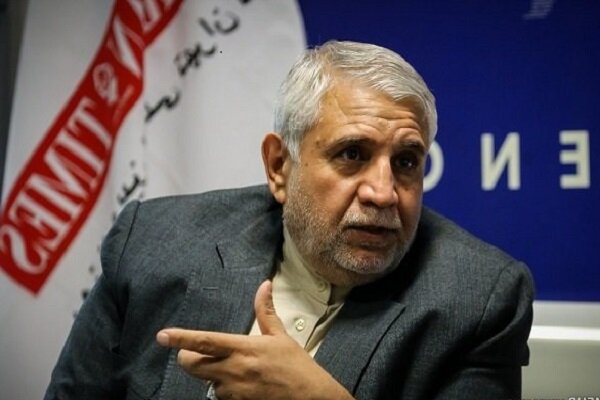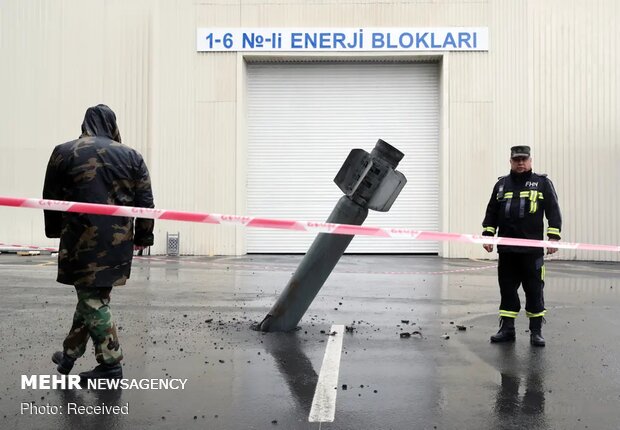Ex-ambassador
TEHRAN, (MNA) – A former Iranian ambassador to the Republic of Azerbaijan believes that no military conflict can solve the Nagorno-Karabakh issue and that Armenia should return Azerbaijan's lands for the talks to start.
The decades-old conflict between Armenia and Azerbaijan has again turned into a violent exchange of fire since some ten days ago. Iran as a country that has once mediated peace between parties has called on both sides to stop military action and come to a negotiating table.
To learn more about the situation in the Nagorno-Karabakh, we reached out to Mohsen Pak Ayeen who has served as Iranian ambassador to Baku from October 2012 to 2016.
Here is the full text of the interview:

How do you assess the stances of the Islamic Republic towards the dispute between Armenia and Azerbaijan?
I believe that the stance of the Islamic Republic in the past days have been good and based on our principles. Previously we had a neutral stance but as these developments are happening near our borders and relate to our national security, a neutral stance cannot be a good one. I think that the stances adopted by Mr. Velayati, Mr. Rabiei, and Mr. Khatibzadeh and also those taken by Leader’s representatives in NW provinces have been good and coordinated.
There are three main principles that should be taken into account. 1) Neighborhood policy; based on which we should have good ties with both the Republic of Azerbaijan and the Republic of Armenia and this has happened, making us capable of mediating between the two states for easing tensions.
2) Iran is basically against the secession of countries and believes that the territorial integrity of states should be preserved. Based on this, we cannot be indifferent to the claim of Karabakh's independence from Azerbaijan. I believe we should categorically oppose the secession of the Republic of Azerbaijan. The one thing that is certain is that Karabakh has been part of Azerbaijan’s territory since 1921 and the time of the Soviet collapse. The establishment of a small country with near 150,000 people turns it into a bait for major powers as it has no financial and military might. It will forcibly become dependent on such powers and problems bigger than the one that we see today will arise. If the problem is now between two countries, then it will be between major powers such as Russia, the USA, the European Union. The situation will become more complicated then.
3) We are basically against the occupation. A clear example is the issue of Palestine where we oppose the occupation of Palestinian territories by the Zionist regime. Currently, seven cities of Azerbaijan are occupied by Armenia, and as Mr. Velayati said we should ask for an end to the occupation. The evacuation can be done in one or several stages but we are against any military means to achieve this. It should be done by negotiations and with the mediation of friends and fair countries.
Both sides of the conflict claim that terrorist groups are being recruited in the front lines. If true, what can be the consequences of terrorists’ presence in the region?
There is no doubt that terrorist groups always cause insecurity. If the reports are true and terrorist groups are being dispatched from Syria and Iraq to this region, it is certainly against our national security and we should strongly stand up to it. And if Turkey is behind this, there will be a need to talk with the country to not become involved in this risk.
What do transregional players such as France and the US seek from these developments?
I think when there has erupted no military war, countries such as the United States and France prefer a ‘neither war nor peace’ situation and this region is not a priority for them. However, when a war breaks out, the situation can be defined in the framework of competitions between Russia and the West. As America does not like an increase of Russian power in Ukraine, Georgia, and West Asia, it certainly does not want to see the fulfillment of Russia’s goals in this region. I think their first priority is competing with the interests of Russia and in the next stage, they will think about the very issue in Karabakh.
When do you think sustainable peace would be established in the disputed area?
A sustainable peace has some characteristics; it is a peace that is based on justice. This means a just peace can be sustainable. Justice lies in ending the occupation, opposing secession, and avoiding war and violence. These components of justice should turn into a preface for achieving sustainable peace.
Is there any light at the end of the tunnel for a peaceful resolution of the crisis in Nagorno-Karabakh?
There are countries in the region that have good intentions and seek to mediate but they have no executive mechanism. The only place that enjoys an executive mechanism and is able to invite and force the parties to peace is the UN Security Council which is basically responsible to enter the field in special conditions such as war. The council, which has US, Russia, and France – as Minsk Group members – among its permanent members, has already issued four resolutions with regards to the Nagorno-Karabakh. The UNSC should first try to implement the resolutions using its executive mechanisms. If they are implemented and the seven Azerbaijani cities are returned, then parties can seat and talk on whether Karabakh has the capacity to become independent or not. But the end to the occupation of the seven cities is a prelude to negotiations.
Interview by Mohammad Ali Haqshenas


No comments:
Post a Comment